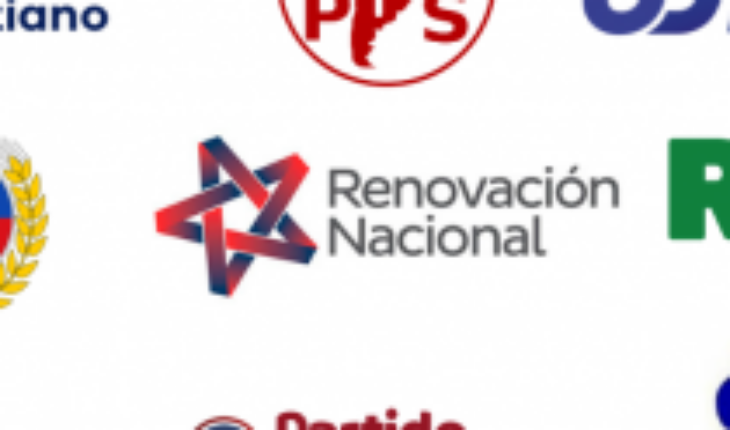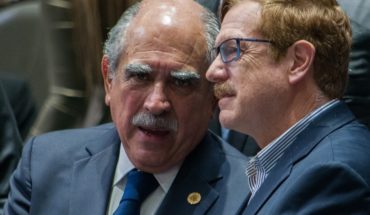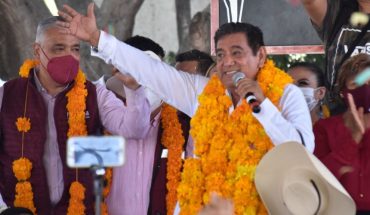In opinion polls around the world, political parties are usually among the least trusted institutions. It seems that high standards are set for parties that they fail to meet. Therefore, they are exposed to constant criticism. However, we largely agree that a democracy needs political parties and, so far, there is no known model that can do without them. This is the starting point: a democracy needs political parties.
Let’s complicate the matter a little more. Faced with the new constitutional process, the question is: What political parties does our democracy need once the new document is approved by the people at the end of this year?
One of the criticisms that we can make of the draft of the New Constitution rejected in September is that political parties have been treated in a generic way. This document used the voice “political organizations”, describing them as “Non-State public entities, of a voluntary nature, that contribute to the formation of the popular will”. He added that “The Constitution protects the right of all persons to participate in political organizations and to run for elected office through them or as an independent” The draft persists in the idea of equalization between political parties and independents in electoral competition. This same equalization is what the current Constitution makes, not correcting, therefore, an error that has been dragging on since 1980. This Constitution, like all constitutions born in dictatorship, is written with a rearview mirror to prevent the past from becoming present. The drafter of the Constitution of 80 considers that one of the main responsible for the coup d’état of 1973 are the political parties. Hence his suspicion of them.. So much so that it sharply separates the political world from the social world, by expressly stating in its article 19 n° 19 final paragraph; “Trade union organizations may not intervene in partisan political activities”, which translates into a fear that the political world will contaminate the social world.
The question to be resolved by the Constitutional Council is whether the logic of minimizing political parties to mere political organizations and equalizing with independents in electoral competition will not have a detrimental effect on our democracy. On the one hand, the minimization of political parties to mere political organizations, produces in the first place the opening of the political space to groups that are not political parties, which results in a corporatized policy, where each representative resolves the demands of the affiliates of his corporation, making a more general interest disappear. On the other hand, the equalization with independents in electoral competition produces the fatal tendency towards populism. It offers an attractive formula of illusory solutions, supposedly non-ideological and endowed with common sense, which never arrive, but which always have a culprit for that delay. That delay for the independent will always be the fault of politics. Because the independent is supposedly not ideologized, and therefore, he is not political.
With this I do not want to save the political parties from any responsibility regarding the current state of politics, but the difference is that the political parties must be accountable to their respective internal organs, on the other hand, the independents decide and vote according to the occasion and do not have to answer to anyone. To this we must add that being qualified as independent provides a certain goodness that tends to be very useful, particularly in times when political parties are going down..
We must recognize that the situation for political parties is much more difficult. Weakened, they are forced to unite to form government and opposition fronts, the rules of the game have changed and the right and the left matter less and less. Before there were nuances between right and left and there was more than one political expression difficult to frame, today the tendency is towards populism.
Faced with this; What new norms should enable the Constitutional Process to reverse this situation?
From now on pWe can mention two:
1.-A better relationship between political parties and social organizations. In Europe it is common for political parties to have unions associated with them, and to be able to participate as affiliates in internal party elections. “…the English Labour Party allows affiliate members to participate; that is, not militants but who have some affiliation to the party, due to membership in some organization. In recent party elections, affiliate members have played a crucial role. In 2015, about 422,000 people participated, of which about 70,000 were affiliate members; Meanwhile, in the Nov 2020, about 490,000 people attended, 76,000 of them non-militants. That is, these elections attracted a significant number of people who are not actively active, who could perfectly change the outcome of an election.”.
2.- Reform the Constitutional Organic Law of Political Parties in order that it recognizes political coalitions and not only electoral pacts. This would imply that political coalitions must legally be required to have a program registered with SERVEL, to which the political parties adhere, obliging themselves to remain in the coalition for the time set by the LOC of Political Parties. It must also participate as a coalition in all elections of popular representation during that period.
Both measures strengthen political parties and our democracy. To this we must add a preponderant role of control by citizens. Being a citizen is a duty that does not begin and end with voting. We must be informed, vote and monitor the actions of local and national governments. Perhaps the most deficient area is the connection of the parties with the citizens, which is why we must create and strengthen mechanisms of intermediation, channeling of demands and social surveillance.
Follow us on
The content expressed in this opinion column is the sole responsibility of its author, and does not necessarily reflect the editorial line or position of El Mostrador.





